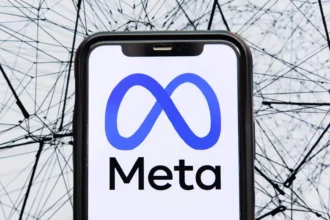Is Meta AI Good or Bad? An In-Depth Review for Users
Hey there! So, have you been turning your head a bit too often towards that shiny new feature from Meta called AI? Yeah, me too. It’s like a magnet now, dragging us all toward it—whether we want to or not. But seriously, like any good tech innovation, it’s got its pros and cons. Let’s dive into the messy waters of the eternal question: is Meta AI good or is it bad?
Table of Contents
ToggleThe Sweet Sweet Pros
Alright, let’s kick things off with the goodies. One of the big selling points is its deep integration across Meta’s platforms, right? I mean, we’re talking about it being connected to Facebook, Instagram, WhatsApp, and Messenger. If you’re like me and spend way too much time scrolling through reels or meme-ing away on Messenger, having AI right at your fingertips is kind of a game changer.
- Integrated Experience: The fact that it’s accessible across these platforms means you’re not jumping through hoops. Need to whip up an image for your Instagram story? Just pop it into Meta AI. And it’s not just a text generator; it churns out images too. Pretty neat, huh?
- Search Engine Connectivity: Another solid point in its favor is the powered connection to Google and Bing. When I tested it, I was blown away by how it pulled real-time info for shopping. Talk about time-saving!
- Fun Features: And then there’s the whole “Imagine” function for generating images. Sure, it’s not perfect, but who doesn’t love instant creativity? I mean, I didn’t expect much when I tossed a vague prompt into it, but I got some delightful outputs that were worth a giggle or two.
But Then, There’s the Flip Side…
Okay, this is where it starts feeling like a roller coaster ride—one minute you’re flying high, the next you’re questioning everything. Unfortunately, while the integration is dope, it’s also got some major issues that are hard to overlook. Like, major headaches, you guys.
- Hallucination Station: First off, let’s tackle the hallucinations. You know when you’re having that weird dream, and suddenly the pizza delivery guy is a dragon? Yeah, well, that’s what it feels like when Meta AI is given a loose prompt. I once asked it about finding follower growth tips for my social media, and it spewed out some wild theories that had me *snorting* laughter. Who knows where it pulled that from!
- Clarification Required: Here’s a hot tip: you will often find yourself needing to clarify or ask follow-up prompts to get something meaningful. My experience has it like this: ask a simple question, get back a vague response, and suddenly you’re having an intense convo with a chatbot that can’t grasp what you really want. Frustrating!
- Average Email Writing: As for writing emails? Hmm… Let’s sprinkle a little realism here—it’s plain. What I mean by plain is the tone is often robotic; it’s like asking a robot to have a conversation. I tried using it to draft an important email once, and while it produced a response, I had to inject my personality into it big time.
Real Experiences, Real Feedback
You see, when it comes to evaluating whether Meta AI is good or bad, it’s all about personal experiences, am I right? So let me spill some of my adventures. One day, I decided to put it up against Meta’s competitors regarding travel planning. Oh boy, what an eye-opener. Long story short, I fact-checked its recommendations and found that half of them were outdated. And I don’t know about you, but if I’m making plans to visit Banff, I don’t want to be pointed to restaurants that closed two years ago! Last thing I want is to show up at a recommended spot just to bump into a ‘permanently closed’ sign. Not cool, Meta.
How Does It Stack Up Against Competitors?
So, where does this leave us? Comparing it with friends in the AI world is fun. I tried out ChatGPT, Claude, and even Copilot sometimes, and they just offer a more cohesive experience, although each has its quirks too. For instance, I’ve found Claude to be much sharper at keeping up with real-time information compared to Meta AI. I’d say if you’re looking for robust help, Claude might serve you better, hands down.
The Unknown and Future Potential
Here’s the kicker—it’s hard to predict where Meta AI is headed. The tech world is constantly evolving. Feedback from users will drastically shape improvements. The AI might iron out its flaws sooner or later, and I genuinely hope that’s the case. With Meta’s resources, I can see it refining its current capabilities into something amazing—if they give it the TLC it needs. That’s a big ‘if’, but let’s keep our fingers crossed, right?
Slicing through Privacy Concerns
Now, let’s pivot for a sec to worry-ville: **privacy concerns**. When I first started using Meta AI, the fine-print scared the socks off me. Here’s the deal—Meta does keep track of the info you share, and it could potentially use that data later on. Picture it: I’m casually mentioning my favorite pizza joint in a chat, and suddenly it pops up with ads on my feed? Nope! My privacy means a lot to me. Before diving into conversations, I always hear my inner voice say: “Don’t share what you wouldn’t want on a billboard!”
Final Thoughts and User Call-to-Action
So, is Meta AI good or bad? Honestly, I think it rests in a weird gray area that depends on how you choose to use it. It’s absolutely convenient, but far from perfect. The lack of consistencies and frequent need for follow-up prompts means it’s got some room to grow. If you want a fun tool to dip your toes into for light tasks, sure, why not? But if you’re after a serious assistant to get things done, you might find more success elsewhere.
Have you tried it yet? I’d love to hear your experiences! Did you get a random prompt hiccup too? What tasks thrilled you most? Hop into the comments and let’s chat about it!





